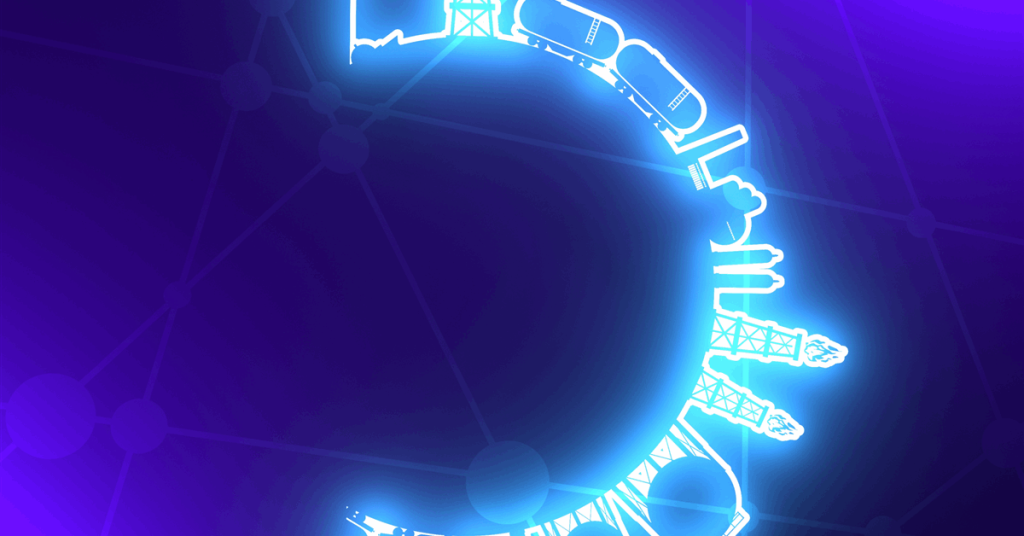Several liquefied natural gas tankers are heading to Asia from a Russian export facility sanctioned by the US, potentially testing Washington’s resolve to crack down on the trade amid high-level talks over the war in Ukraine.
The Iris and Voskhod vessels, which are carrying shipments from the Arctic LNG 2 plant in Siberia, began traveling to North Asia via the Northern Sea Route on Aug. 15 after being idled for weeks, according to ship-tracking data compiled by Bloomberg. Two other tankers that recently loaded at the plant also started heading toward Asia last week.
Arctic LNG 2, led by Novatek PJSC, is instrumental to Russia’s plans to triple LNG exports by 2030 — and tap new gas markets after a sharp drop in pipeline sales to major traditional buyers in Europe. The US has held back on further tightening measures against buyers of Russian energy exports including China as it seeks to broker a ceasefire agreement in Ukraine, with Donald Trump saying face-to-face discussions with Vladimir Putin on Friday were “extremely productive.”
Arctic LNG 2 produced eight cargoes last summer but was forced to shut in October as it failed to find buyers and as ice started its seasonal build-up around the facility. The plant, initially sanctioned by the Biden administration, resumed loading in June but no cargoes have docked at an import facility yet.
It isn’t clear if the four vessels currently heading toward Asia will ultimately find buyers. About a dozen ships, including those that can navigate icy waters, have been marshaled to potentially service Arctic LNG 2, with some changing management companies several times to help obfuscate their actual owners.
Generated by readers, the comments included herein do not reflect the views and opinions of Rigzone. All comments are subject to editorial review. Off-topic, inappropriate or insulting comments will be removed.
element
var scriptTag = document.createElement(‘script’);
scriptTag.src = url;
scriptTag.async = true;
scriptTag.onload = implementationCode;
scriptTag.onreadystatechange = implementationCode;
location.appendChild(scriptTag);
};
var div = document.getElementById(‘rigzonelogo’);
div.innerHTML += ” +
‘‘ +
”;
var initJobSearch = function () {
//console.log(“call back”);
}
var addMetaPixel = function () {
if (-1 > -1 || -1 > -1) {
/*Meta Pixel Code*/
!function(f,b,e,v,n,t,s)
{if(f.fbq)return;n=f.fbq=function(){n.callMethod?
n.callMethod.apply(n,arguments):n.queue.push(arguments)};
if(!f._fbq)f._fbq=n;n.push=n;n.loaded=!0;n.version=’2.0′;
n.queue=[];t=b.createElement(e);t.async=!0;
t.src=v;s=b.getElementsByTagName(e)[0];
s.parentNode.insertBefore(t,s)}(window, document,’script’,
‘https://connect.facebook.net/en_US/fbevents.js’);
fbq(‘init’, ‘1517407191885185’);
fbq(‘track’, ‘PageView’);
/*End Meta Pixel Code*/
} else if (0 > -1 && 70 > -1)
{
/*Meta Pixel Code*/
!function(f,b,e,v,n,t,s)
{if(f.fbq)return;n=f.fbq=function(){n.callMethod?
n.callMethod.apply(n,arguments):n.queue.push(arguments)};
if(!f._fbq)f._fbq=n;n.push=n;n.loaded=!0;n.version=’2.0′;
n.queue=[];t=b.createElement(e);t.async=!0;
t.src=v;s=b.getElementsByTagName(e)[0];
s.parentNode.insertBefore(t,s)}(window, document,’script’,
‘https://connect.facebook.net/en_US/fbevents.js’);
fbq(‘init’, ‘1517407191885185’);
fbq(‘track’, ‘PageView’);
/*End Meta Pixel Code*/
}
}
// function gtmFunctionForLayout()
// {
//loadJS(“https://www.googletagmanager.com/gtag/js?id=G-K6ZDLWV6VX”, initJobSearch, document.body);
//}
// window.onload = (e => {
// setTimeout(
// function () {
// document.addEventListener(“DOMContentLoaded”, function () {
// // Select all anchor elements with class ‘ui-tabs-anchor’
// const anchors = document.querySelectorAll(‘a .ui-tabs-anchor’);
// // Loop through each anchor and remove the role attribute if it is set to “presentation”
// anchors.forEach(anchor => {
// if (anchor.getAttribute(‘role’) === ‘presentation’) {
// anchor.removeAttribute(‘role’);
// }
// });
// });
// }
// , 200);
//});

